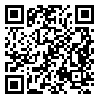Articles accepted at the time of publication
Back to the articles list |
Back to browse issues page
1- Associate Professor of Applied Linguistics, Department of English Language and Literature, Faculty of Persian Literature and Foreign Languages, Allameh Tabataba’i University, Tehran, IRAN , easalimi@atu.ac.ir
2- PhD Candidate in Teaching English as a Foreign Language, Department of English Language and Literature, Faculty of Persian Literature and Foreign Languages, Allameh Tabataba’i University, Tehran, IRAN
2- PhD Candidate in Teaching English as a Foreign Language, Department of English Language and Literature, Faculty of Persian Literature and Foreign Languages, Allameh Tabataba’i University, Tehran, IRAN
Abstract: (1949 Views)
Before teachers can transform the reality and promote a liberating education within mainstream educational contexts, they must first gain a thorough understanding of how learners perceive the world. In an attempt to gauge EFL learners’ perceptions, the present study set out to conceptualize the construct of Critical Digital Pedagogy (CDP) by developing and validating a questionnaire for use in online EFL settings. The researchers distributed a preliminary questionnaire with 65 items to 380 adult Iranian EFL learners and used Exploratory Factor Analysis as well as Confirmatory Factor Analysis (EFA, CFA) to analyze the results. After removing 9 items, the final questionnaire consisted of 56 items on a five-point Likert scale. The analysis revealed that CDP consists of 10 factors, namely “consciousness raising,” “community and collaboration,” “empowerment and agency,” “inclusivity,” “dialogism,” “co-creation of materials,” “praxis,” “problem-posing education,” “teachers as transformative intellectuals,” and “critical thinking and reflection.” Additionally, the convergent validity as well as the reliability of the questionnaire to measure the intended construct was statistically confirmed. These findings have important implications for EFL teachers, curriculum developers, course designers, and language researchers as they increase awareness of CDP and its underlying components.
Article Type: مقالات علمی پژوهشی |
Subject:
language teaching
Send email to the article author
| Rights and permissions | |
 |
This work is licensed under a Creative Commons Attribution-NonCommercial 4.0 International License. |








